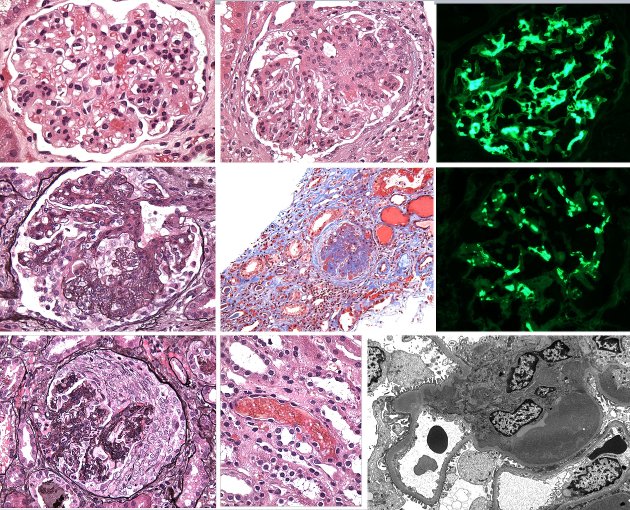Translational Genetics and Personalized Nephrology

Pathology of IgAN: mesangial hypercellularity (top left), endocapillary proliferation (top center), segmental glomerular scarring (middle left), tubular atrophy and interstitial fibrosis (middle center), crescents (bottom left), tubular RBC casts (bottom center), electron-dense mesangial deposits (bottom right) and typical immunofluorescence staining pattern for IgA (top right) and C3 (middle right).
The ultimate goal of our lab is to improve the diagnosis and treatment of patients suffering from kidney disease. Our genetic investigations provide new insights into disease pathogenesis, but also require clinical translation through rigorous and well-designed clinical studies. Such studies range from simple genotype-phenotype correlation analyses to prospective biomarker studies and randomized trials. We are also interested in testing the utility of new molecular diagnostic tools (such as Next Generation sequencing) in the clinical nephrology practice setting.
We selected IgA nephropathy (IgAN) as a disease model for implementation of some of these studies. IgAN leads to progressive kidney failure in up to 50% of affected individuals. The prognosis, however, is quite variable and the outcome is difficult to predict in individual patients. It is estimated that 20%-40% of cases develop end stage renal disease (ESRD) within 20 years of diagnosis. Our translational studies aim to validate new genetic and molecular markers to enable precise diagnosis, improve prognostication, predict relapse and recurrence, and ultimately lead to improved personalized treatment strategies.
